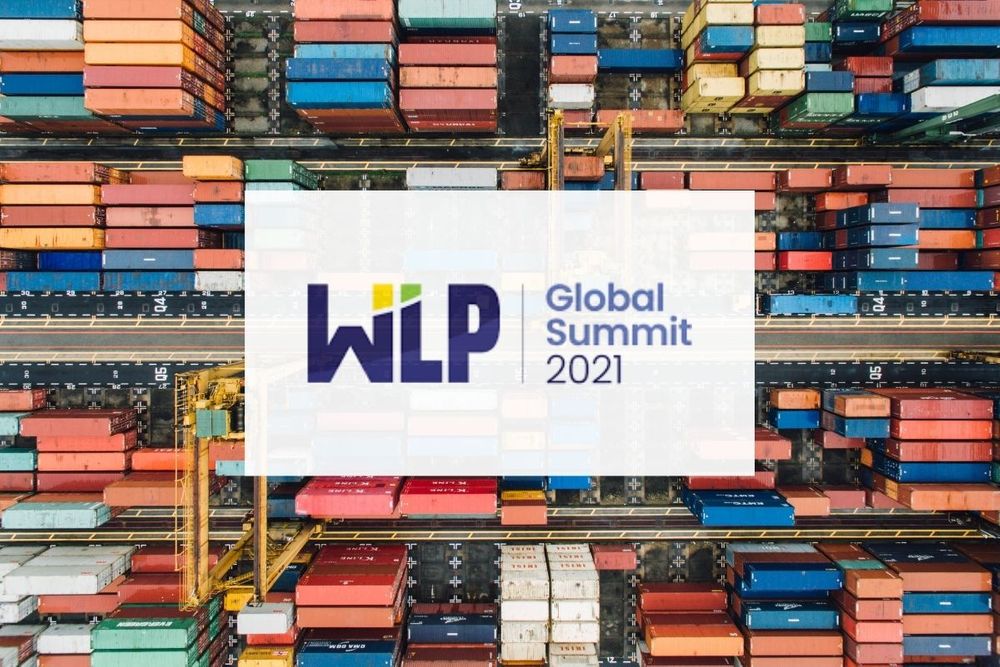The World Logistics Passport (WLP), a global, private sector-led initiative designed to smooth the flow of international trade and unlock market access, today welcomes ten new countries at its inaugural Global Summit.
Taking place virtually at 16:00 GST, the Summit will host a mix of CEOs, government ministers and representatives of leading international trade bodies to further international cooperation, offering businesses the right conditions, information and incentives to unlock the full potential of global trade. It will culminate in the unveiling of ten new countries which are joining the program, and with a declaration for adoption by all WLP countries in attendance.
As the world’s first global freight loyalty scheme, WLP offers members access to three tiers of benefits – silver, gold and platinum – provided by a range of WLP partners including airport authorities, port operators, customs services and others that help to make supply chains more efficient. Once the WLP is fully operational in a country, members of the WLP, including traders and freight forwarders, can anticipate an annual increase in trade on average of up to 5-10%. The WLP is free to join and open to all countries that meet the entry requirements.
Sultan Ahmed bin Sulayem, Group Chairman and Chief Executive Officer, DP World, said:
“Today’s Summit marks an exceptional year for the World Logistics Passport, with the number of countries in this club of trading nations having risen to 23 across the world in just twelve months. The WLP is helping countries grow their economies and create jobs, facilitating access to new markets and increasing the resilience of the global supply chain in the process.”
The WLP broadens its reach in Africa
The decision of the Kenyan International Freight and Warehousing Association (KIFWA) to join the WLP as the first Partner in Kenya lays the foundations for the launch of Kenya as a hub for East Africa. With improving infrastructure networks and close trade ties across East and Central Africa, Kenya is well placed to support the engagement of companies across the region; and the WLP continues to work with other potential partners in Kenya as well as freight forwarder associations and chambers of commerce in neighboring countries to bring them into the network.
The South African Association of Freight Forwarders (SAAFF) has also joined the WLP as a partner. It will help to expedite the full operationalization of South Africa as a Hub country through the SAAFF’s ability to mobilize leading South African freight forwarders and logistics companies to join as Members.
These two developments follow the news earlier in June that Ethiopia, Botswana, Zimbabwe, Mozambique, Burkina Faso and Guinea have all joined the WLP. With these new entrants to the program, African and global traders will have easier east-west access to trade routes, while also capitalizing on key trading centers across Southern and Eastern Africa.
The WLP expands in Latin America
In Latin America, both Paraguay and Ecuador will now be able to further diversify their exports, adding new international destinations for traders. The WLP opens new routes for Paraguay’s exports that currently go mainly to neighboring countries and will help it grow as a key industrial provider for the region. Besides adding new destinations for the country’s food commodities, the WLP will also help Paraguay lower its imported energy and labor costs.
Being part of the WLP will help Ecuador meet the logistics potential of the country, accelerate export programs in place, increase the global presence of its main export products related to food, vegetable and fish products and also increase trade links with main hubs in the region.
Malaysia’s Johor Port and India’s Delhi International Airport have joined the WLP as new strategic partners in Asia
The WLP is strengthening its presence in Asia through the addition of new partners in India and the creation of a WLP Hub in Malaysia.
The registration of Delhi International Airport, India’s leading air freight destination, will enable traders in India to accelerate exports to various parts of the world. New Delhi remains a key station along major trans-Asia air cargo routes with over one million metric tonnes of goods transported to over 77 international destinations.
The addition of Johor Port as a partner, makes Malaysia one of the latest hubs to join the WLP. Johor Port remains a core part of the Johor Strait shipping infrastructure, and with a distance-to-air of 45 kilometers to the nearest cargo airport, the port has the potential to grow into a hub for global logistics.
The introduction of these two new partners within the WLP will enable increased access to trade routes in Latin America, Africa and Asia, shape resilient and substantial trade flows, while driving the shift toward high-value manufactured goods and seamless multi-modal trade.
WLP partners adopt a declaration on the role of the WLP in building a resilient and inclusive trading ecosystem with the support of public and private partners
The declaration, adopted by those countries and members present at the WLP Global Summit, commits to supporting businesses globally through complementary efforts to those already undertaken by other international organizations. The declaration states that the parties:
•Agree on the importance of global trade for economic growth, resilience and bilateral cooperation
•Acknowledge the benefits of the WLP as a private sector-led initiative helping businesses reduce costs and time in doing international trade
•Proclaim the WLP to be inclusive and open to all countries and firms that fulfil minimum requirements
•Acknowledge that the WLP is an integral part of the global economic response to boost international trade in the face of the COVID-19 crisis
•Declare that WLP complements initiatives of other international organizations, such as the WCO and FIATA
Chaired by HH Sheikh Ahmed bin Saeed al Maktoum, Chairman and CEO of the Emirates Group, the Summit will be attended by a global roster of speakers and panelists representing private and public sector leaders including:
•H.E. Amadou Hott, Minister in charge of Economy, Planning and International Cooperation, Senegal
•H.E. Marcelo Sampaio, Deputy Minister of Infrastructure, Brazil
•H.E. Bakhyt Sultanov, Minister of Trade and Integration, Kazakhstan
•H.E. Dr. Thani Al Zeyoudi, Minister of State for Foreign Trade and Minister in charge of Talent Attraction and Retention at Ministry of Economy, United Arab Emirates
•Pranab Kumar Das, Director of Compliance and Facilitation, World Customs Organization
•Sanjiv Edward, Chief Commercial Officer, Delhi International Airport (DIAL)
•Elizabeth Getahun, CEO of Panafric Global and President of the Ethiopian Freight Forwarding and Shipping Agents Association
•Bruno Guella, Managing Director, Montevideo Free Airport, Uruguay
•Basil Pietersen, President, International Federation of Freight Forwarders Associations (FIATA)
•Sultan Ahmed bin Sulayem, Group Chairman and Chief Executive Officer, DP World
•Nabil Sultan, Divisional Senior Vice President, Emirates SkyCargo
Discussion leaders at the Summit will also be presenting new, proprietary data from the Global Freight Resilience Index. The analysis, developed by Whiteshield Partners, ranks countries based on their Policy Opportunity and Freight Performance.
Singapore tops the GFRI 2021 rankings, as it has done over the last five years, and it is followed by the Netherlands and Denmark in second and third place respectively. The top 10 countries in the GFRI are again dominated by European countries highlighting the need for programs such as the WLP to upgrade capabilities and accelerate the long-term resilience of logistics and trading capabilities nations in Latin America, Africa and Asia.
The 2021 Index comes at a time when we are learning lessons from COVID-19 which tested logistics systems in 2020. To respond to trends and prepare for disruptions, policy makers can enhance freight resilience by investing in technological innovation, implementing sustainable policies and promote quality engagement with the private sector.
To find out more please visit https://www.worldlogisticspassport.com/wlp-global-summit









